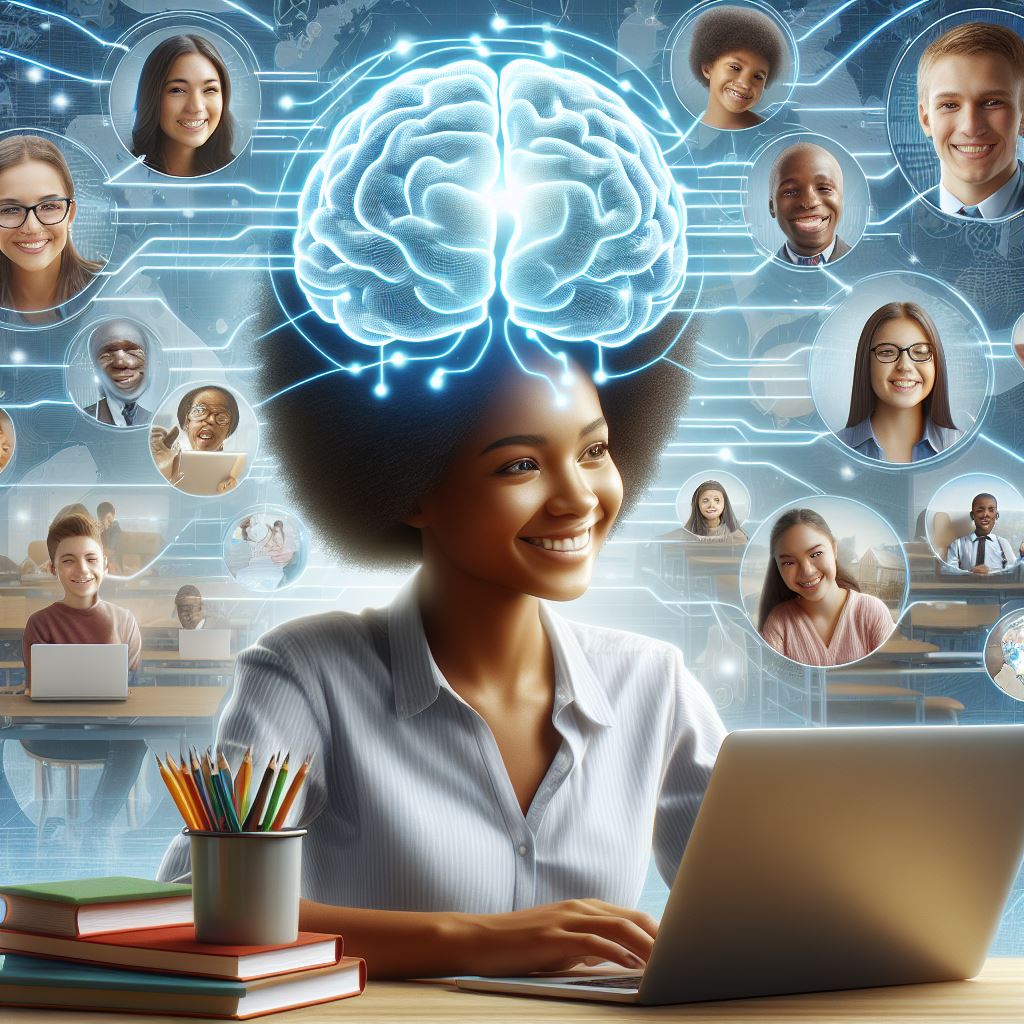Revolutionizing Education with Artificial Intelligence
Artificial Intelligence (AI), once a mere figment of science fiction, is now a powerful force that is deeply influencing the evolution of online learning. Its capabilities are opening up new avenues for personalized education, democratizing learning for students around the globe. Unlike traditional classroom settings where a one-size-fits-all approach is common, AI offers a bespoke learning experience, tailoring itself to the individual needs, pace, and learning style of each student.
With the integration of AI, online learning platforms can now analyze a student’s performance in real time, identifying strengths and areas for improvement. Adaptive learning technologies are at the forefront of this innovation, utilizing complex algorithms to adjust the difficulty level of tasks based on learners’ performance. By doing so, these technologies ensure that no student is left behind or unchallenged. Additionally, AI-powered chatbots and virtual tutors are providing learners with instant feedback and support, negating the need for students to wait for office hours or email responses from busy instructors.
But AI’s role in education is transforming content creation and curation. AI systems can sift through vast amounts of educational material to recommend resources that align with learners’ goals and preferences. What’s more, the technology is enabling the creation of dynamic learning materials that can morph and update in response to new information or student feedback.
Virtual Reality: Bridging the Gap Between Classroom and Real World
If artificial intelligence is personalizing how we learn, Virtual Reality (VR) is revolutionizing where and what we can learn. VR in online education it’s an immersive tool that has the potential to revolutionize the learning experience. Through VR, students can transport themselves from their bedroom, kitchen table, or local café directly into interactive virtual classrooms, laboratories, or field trips, without ever leaving their homes.
The immersive nature of VR makes it an ideal platform for learning complex subjects and procedures that would otherwise require hands-on experience. Medical students, for example, can practice surgeries or explore human anatomy in a three-dimensional space that closely mimics reality. Meanwhile, history students might walk through ancient ruins or participate in historical events, gaining a visceral understanding that textbooks alone cannot provide.
VR’s potential for engagement is phenomenal; it captures students’ attention like few other mediums can. In an age of fleeting attention spans and the constant battle against distracting devices, VR’s ability to draw students into a fully immersive educational environment is invaluable. It enhances retention and comprehension by presenting information in a way that students can see, touch, and interact with, making learning a memorable and impactful experience.
Personalized Learning Platforms
Choice and accessibility have become watchwords of modern online education, and personalized learning platforms are the standard bearers of this movement. Leveraging the power of data analytics and user-centric design, these platforms constitute an increasingly diverse ecosystem where learners of all ages and backgrounds can chart their educational journeys according to their distinct needs, preferences, and goals.
In the digital learning space, the traditional barriers of geography, time zones, and socioeconomic status are crumbling. Students in remote or underserved regions now have the opportunity to access the same quality of education as those in bustling city centers. Furthermore, the flexibility offered by these platforms suits diverse lifestyles, enabling people to learn at their own pace, on their own schedule, and in their own chosen environment.
Modern personalized learning platforms are not limited to college courses. They also offer a wide array of learning experiences, from skill-specific workshops to hobbyist communities, catering to learners who seek value beyond formal qualifications. The integration of multimedia content, interactive tools, and community forums enhances user engagement, turning the learning process into a holistic experience that extends beyond the screen.
Accessibility is also being redefined by advancements in assistive technologies integrated into these platforms. Learners with disabilities can now utilize speech-to-text functionality, screen readers, and subtitle features to engage with content that was once inaccessible to them. The potential for inclusive education has never been greater, with technology bridging gaps and opening doors for everyone who has a desire to learn.
Navigating the Intersection of Technology and Pedagogy
As we look forward to the future landscape of online learning, driven by technological innovation, several pivotal themes emerge. The continuous evolution of AI, VR, and personalized learning platforms heralds an education sector that is increasingly adaptive, immersive, and inclusive. However, the role of educators as guiding forces in this transformation is all but diminished.
The interaction between advanced technologies and human pedagogy is at the heart of the most effective learning experiences. Educators are reimagining their roles, transitioning from content deliverers to learning facilitators, mentors, and designers. They collaborate with technologists to craft educational experiences that not only convey knowledge but also inspire, engage, and challenge.
Furthermore, ethical considerations and digital citizenship are becoming central to the discourse on technology in education. As data becomes a cornerstone of personalized learning, protecting student privacy and ensuring responsible use are paramount. Educators, tech developers, and policy makers are working together to establish guidelines and practices that safeguard learners’ rights while promoting innovation.
Ultimately, the technological advancements that are shaping online learning today are not merely gadgets and algorithms; they represent tools that expand human potential. They enable us to create educational experiences that are more aligned with the natural ways in which we learn and interact with the world. As we continue to explore and leverage these innovations, we open a world of possibilities for current and future generations to learn, grow, and fulfill their potential.
The journey we’re on is one of constant discovery, where each technological breakthrough brings us closer to realizing the full spectrum of human learning capabilities. The thrilling intersection where advanced technology meets passionate education is where the future of learning is continuously being invented. It’s an era of unprecedented transformation, and we’re just beginning to unravel the manifold ways these tech innovations will continue to influence and evolve the education landscape for the better.

